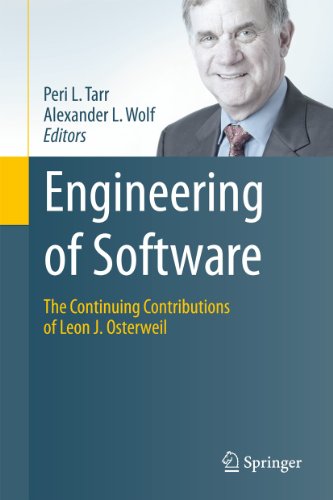

Most ebook files are in PDF format, so you can easily read them using various software such as Foxit Reader or directly on the Google Chrome browser.
Some ebook files are released by publishers in other formats such as .awz, .mobi, .epub, .fb2, etc. You may need to install specific software to read these formats on mobile/PC, such as Calibre.
Please read the tutorial at this link: https://ebookbell.com/faq
We offer FREE conversion to the popular formats you request; however, this may take some time. Therefore, right after payment, please email us, and we will try to provide the service as quickly as possible.
For some exceptional file formats or broken links (if any), please refrain from opening any disputes. Instead, email us first, and we will try to assist within a maximum of 6 hours.
EbookBell Team

4.3
8 reviewsSoftware engineering research can trace its roots to a few highly influential individuals. Among that select group is Leon J. Osterweil, who has been a major force in driving software engineering from its infancy to its modern reality. For more than three decades, Prof. Osterweil's work has fundamentally defined or significantly impacted major directions in software analysis, development tools and environments, and software process--all critical parts of software engineering as it is practiced today. His exceptional contributions to the field have been recognized with numerous awards and honors through his career, including the ACM SIGSOFT Outstanding Research Award, in recognition of his extensive and sustained research impact, and the ACM SIGSOFT Influential Educator Award, in recognition of his career-long achievements as an educator and mentor.
In honor of Prof. Osterweil's profound accomplishments, this book was prepared for a special honorary event held during the 2011 International Conference on Software Engineering (ICSE). It contains some of his most important published works to date, together with several new articles written by leading authorities in the field, exploring the broad impact of his work in the past and how it will further impact software engineering research in the future. These papers, part of the core software engineering legacy and now available in one commented volume for the first time, are grouped into three sections: flow analysis for software dependability, the software lifecycle, and software process.